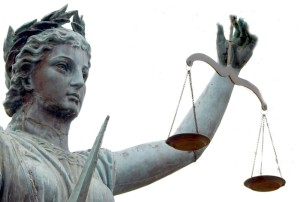Today, the Fourth Circuit issued a published opinion in the civil case of Henson v. Santander Consumer USA. The Fourth Circuit affirmed the district court’s holding that Santander was not considered a “debt collector” within the meaning of Fair Debt Collection Practices Act (“FDCPA”).
Origins of the Dispute
Plaintiff Rick Henson and three others (“Plaintiffs”) entered into loan agreements with CitiFinancial Auto (“Citi”) to finance the purchase of their vehicles. Plaintiffs eventually defaulted on the loans and Citi sold the loans to Defendant Santander Consumer USA, Inc. (“Santander”). After acquiring ownership of the loans, Santander attempted to collect the monies owed. During this process, Plaintiffs alleged that Santander misrepresented the amount of money owed on the loans and whether Santander was entitled to collect on the loans. Plaintiffs ultimately filed suit against Santander, contending that Santander’s actions violated the FDCPA, 15 U.S.C. §§ 1692-1692p, by engaging in prohibitive collection practices.
The District Court Grants Santander’s Motion to Dismiss
Santander moved to dismiss the case under Fed. R. Civ. P. 12(b)(6), arguing that Plaintiffs failed to plead that Santander qualified as a “debt collector” within the meaning of the FDCPA. As a result, Santander argued that the FDCPA did not apply to its actions. The district court agreed with Santander, holding that “creditors collecting debts in their own names and whose primary business is not debt collection” are not considered “debt collectors” under the FDCPA. Plaintiffs appealed.
Santander’s Activities Do Not Fall Within the Definition of “Debt Collector” Under the FDCPA
On appeal, Plaintiffs argued that Santander should be considered a “debt collector” because they acquired ownership of the loans when the loans were already in default. As a result, Plaintiffs contended that because the FDCPA excludes from the definition of “creditor” anyone who “receives an assignment or transfer of a debt in default solely for the purpose of facilitating collection of such debt for another,” Santander must be considered a “debt collector.”
The Fourth Circuit disagreed. The court broke down the statutory definition of “debt collector” into two parts. First, the definition of “debt collector” includes “(1) a person whose principal purpose is to collect debts; (2) a person who regularly collects debts owed to another; or (3) a person who collects its own debts, using a name other than its own as if it were a debt collector.” Second, the statute excludes certain parties from being considered debt collectors. For example, an individual seeking to collect a debt on behalf of another when the debt is not in default is excluded from the definition of debt collector.
Using this definition, the court concluded that Santander did not fall under the definition of a “debt collector.” The court reasoned that Santander did not fit the first and third parts of the definition because the complaint neither alleged that Santander’s principal business was debt collection, nor stated that Santander attempted to use a different name when it collected the debts. Further, the court reasoned that Santander did not fit the second part of the definition because was it was collecting the debt for itself, not for a third party. As a result, the Fourth Circuit held that Santander’s activities did not fall within the meaning of a “debt collector” under the FDCPA and Plaintiffs failed to state a claim under this cause of action.
The Fourth Circuit Affirms the District Court’s Holding
The Fourth Circuit affirmed the district court’s dismissal of Plaintiffs’ complaint, holding that Santander did not qualify as a “debt collector” under the FDCPA.



